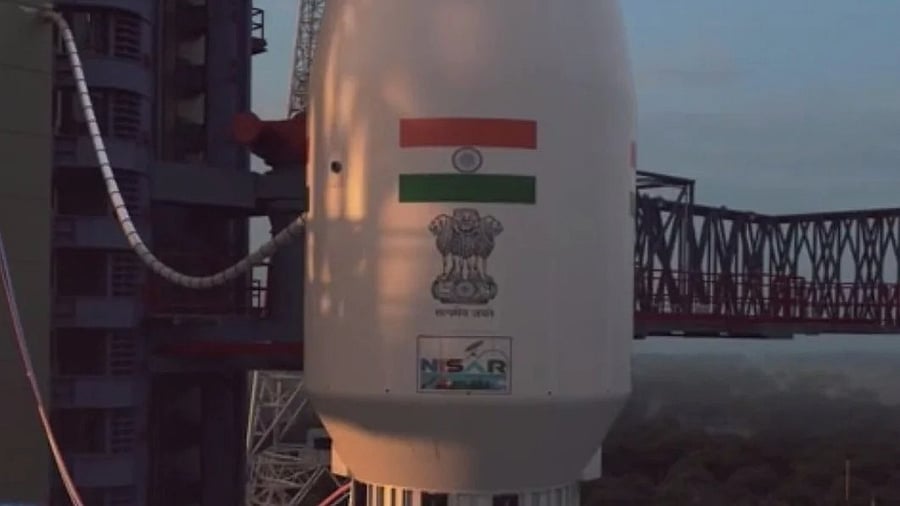
Launch and Deploy Animation of the NASA-ISRO SAR (NISAR) spacecraft.
Credit: nisar.jpl.nasa.gov
Bengaluru: Nasdaq-listed semiconductor company Texas Instruments (TI) semiconductors are enabling the radar imaging and scientific exploration payloads for the NASA-Indian Space Research Organization (ISRO) synthetic aperture radar (NISAR) satellite, which was recently launched into orbit.
The launch of the satellite culminates a decade-long partnership between TI and the ISRO to optimise the performance of the electronic systems responsible for this Earth-observation mission.
The ISRO describes NISAR as the first Earth-observation mission to use dual-band synthetic aperture radar (SAR) technology, enabling the system to capture precise, high-resolution images during the day, night and all weather conditions. TI’s technology is enabling the satellite’s next-generation capabilities through efficient power management, high-speed data transfer, and precise signal sampling and timing.
“From selecting the right products to ensuring consistent support across development cycles, TI’s technical expertise helped us navigate complex payload requirements,” said Nilesh Desai, Director, Space Applications Centre (SAC), ISRO. “A deeply coupled partnership, specifically focused on high-impact mixed signal and analog semiconductors, enabled ISRO to meet the system-level requirements for a satellite in low Earth orbit. Together, we achieved the space-grade performance standards needed for this important mission," he added.
Throughout the project life cycle, TI’s system expertise and space-grade semiconductors, which are designed to withstand the harshest space environments, helped enable the advanced S-band SAR capabilities of the NISAR mission, the company said in a release. The company provided a radiation-hardened power management die for SAC-ISRO developed a point-of-load hybrid power module, helping optimise size, weight and power for the mission payloads.
“As the NISAR satellite is now in orbit, I reflect on the decade-long partnership that brought us here and how our teams are already looking to what’s next, developing new technologies that will enable future missions,” said Elizabeth Jansen, TI India’s sales and applications director.
